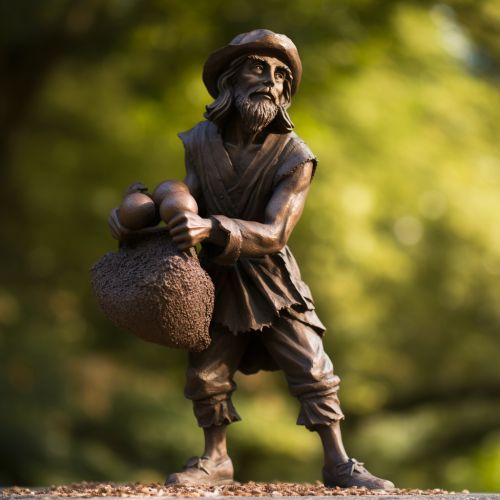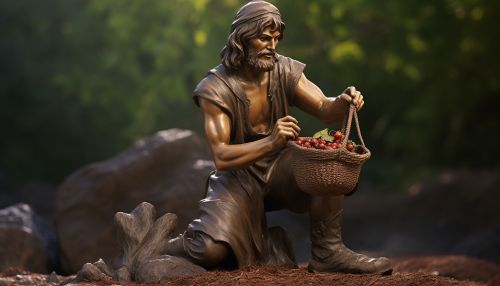Johnny Appleseed
Early Life
Johnny Appleseed, born as John Chapman on September 26, 1774, was an American pioneer and nurseryman who introduced apple trees to large parts of Pennsylvania, Ohio, Indiana, and Illinois. He was born in Leominster, Massachusetts, to Nathaniel and Elizabeth Chapman. His father was a Minuteman who fought in the Revolutionary War and served with General George Washington.

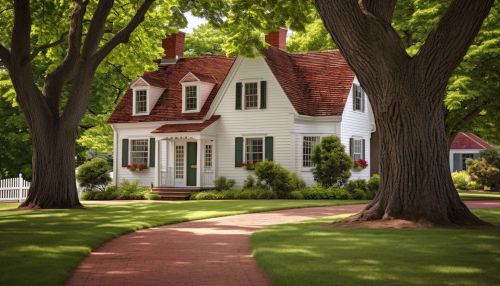
Chapman's early years were spent in Massachusetts where he received a rudimentary education. His mother died when he was very young, and his father remarried and moved the family to Longmeadow, Massachusetts. Here, Chapman's interest in nature and the outdoors began to develop.
Career as a Nurseryman
In 1792, at the age of 18, Chapman began his career as a nurseryman in the wilderness of Pennsylvania. He would collect apple seeds from cider mills and plant them in nurseries. He would then leave the nurseries in the care of a neighbor who would sell trees on shares.
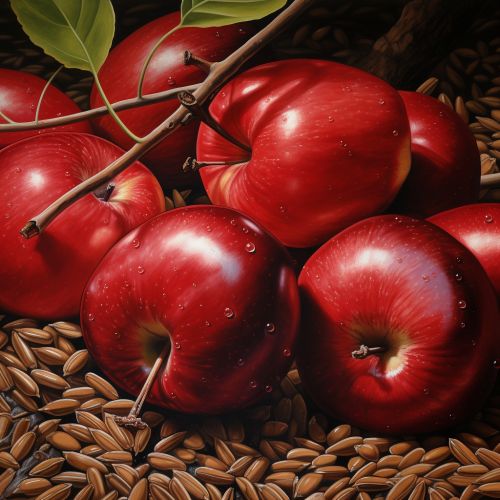
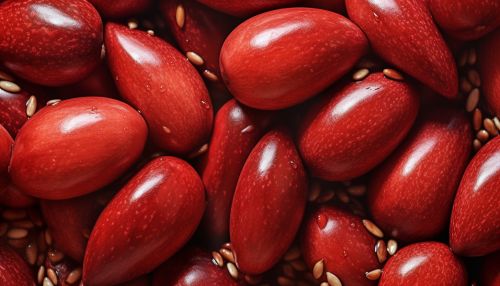
Chapman's work was not just a business but a mission. He believed that apples were a great source of sustenance. His efforts led to the spread of apple orchards across the American frontier. He became a legend in his own time due to his kind, generous ways, his leadership in conservation, and the symbolic importance he attributed to apples.
Travels and Planting
Chapman travelled extensively, particularly in Pennsylvania and Ohio. He would travel ahead of settlers and plant nurseries, knowing they would be needed. He would then sell or trade the seedlings to settlers who came later. He was known to barter his apple trees for clothing or food, and he was often seen planting in bare feet, which contributed to his eccentric image.
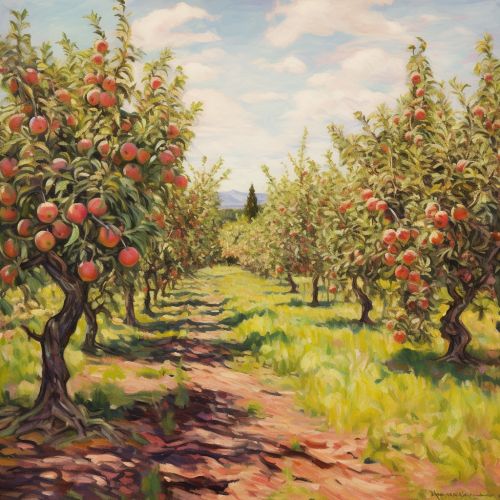
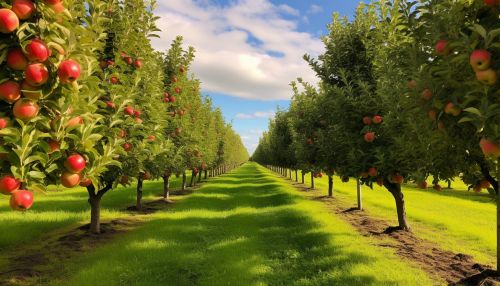
Chapman was also a conservationist and practiced a form of forest farming, which involved planting seeds in nurseries rather than clear-cutting existing forests. This method of agroforestry is now considered a sustainable way of farming.
Legacy
Chapman's legacy lives on in the many orchards across the Midwest that originated from his trees. He is remembered not only for his contributions to agriculture but also for his kind spirit and respect for the land. His life has been the subject of many books and movies, and his image as a rugged, barefoot wilderness man planting apple trees remains a part of American folklore.
